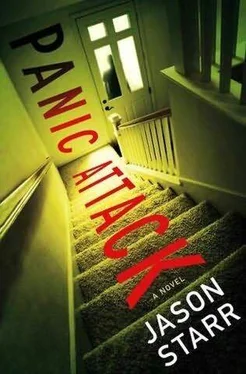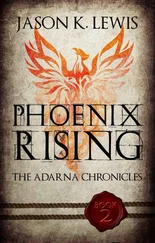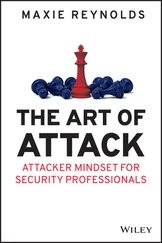“And it’s making you feel like the victim again,” she added.
He’d told her in previous sessions that he was often picked on as a kid and was unpopu lar in elementary school and ju nior high, and they’d talked about how these experiences had scarred him. He remembered that just this morning, with Dana, he’d brought up running away from the bullies in school. There had to be some significance to this.
He told her all about the night of the shooting, mentioning that he had been having the recurring dream about the giant black rat who’d transformed from a female patient when Marissa woke him up. He was able to describe all the events in a very clear, matter- of- fact way, and it felt good to talk about it in a safe setting, where he didn’t feel threatened. It was much different than when he talked to the press and the police, when he felt like he had to choose his words carefully because everything was being scrutinized
He told her the police believed his maid, Gabriela, had been involved in the robbery, and he made sure that he expressed his anger about this properly. He didn’t just tell her he was angry in a detached way. He made sure that he felt the anger, that he was experiencing the anger.
“I can’t believe she was able to deceive all of us for so long,” he said. “I’m usually so perceptive, nothing gets past me. I feel so furious. I feel so wronged.”
This was good- he was expressing himself well, using “I” statements.
“You didn’t know,” Carol said.
“But I feel so hurt by what she did to me,” Adam said. “If I’d just caught on sooner, I could’ve fired her and prevented all of this. They say she was a drug addict, and I don’t know how she was able to keep that a secret. I can always tell when somebody’s lying to me. It’s my best skill.”
“Addicts can be very clever,” she said. He’d said the same thing many times to his own patients.
He went on, describing what had happened after the shooting- how he’d expected to be treated like a hero and was shocked when he saw the way he was being portrayed by the media.
“I know how ridiculous this sounds now,” he said, “but I thought I’d be famous because of this, famous in a good way. I mean, you can’t believe how caught up I got. I thought I’d be the next Dr. Phil. I thought they’d film a movie about my life.”
“It was an exciting feeling,” she said. “It made you feel confident.”
“Yes,” he said, “and my glossophobia subsided, which was a very exciting, seductive feeling, too. Also, I have to admit, I enjoyed the attention. I know that’s childish, that as an adult I should want respect, not attention, but it felt very seductive- and addictive, which is strange for me because I don’t have an addictive personality.”
“It’s easy to feel seduced by your emotions when your self- esteem is low, when you’re unhappy in other aspects of your life. You experienced a psychological high, it was a very powerful feeling. Do you think you don’t get enough respect in your life?”
He knew what she was trying to do. She was challenging him, trying to draw out a defensive response, but he went with it, saying, “Yeah, sometimes. As you know, this can be a thankless profession.”
“Well, your colleagues respect you.”
“I haven’t been so sure about that.”
“You can’t expect people not to feel a little awkward,” Carol said. “It was an unusual situation, and I think everyone handles these sorts of things in their own way.”
He could see her point.
“What about at home?” she asked. “Has your marriage been good lately? Do you feel respected and appreciated?”
He thought about his bickering with Dana and his problems with Marissa.
“No, I don’t,” he said, “and I know I probably haven’t been doing a lot to change that. What happened the other night certainly didn’t help.”
“You said you don’t feel like you did anything wrong that night.”
“I don’t. Well, except for shooting him so many times. I think that was a mistake.”
“Every decision you make can’t be the perfect one, Adam. You can only try to do your best.”
“I know, you’re right,” he said,“but…there’s something else.” He sipped some water, collecting his thoughts, then said, “There’s something… I didn’t tell anyone yet. I didn’t tell the police. I didn’t even tell Dana.”
As a seasoned therapist who’d heard it all, nothing usually shocked Carol, but Adam noticed her growing concern. “Something about the shooting?” she asked.
“Yes,” Adam said.
She was waiting intently for him to continue.
“I didn’t lie to the police about anything,” Adam said. “Everything I told them was entirely truthful, exactly as I remembered it. But I… well, I omitted something.”
He paused again, wondering if he was doing the right thing, starting to tell Carol about this. He wasn’t concerned about her talking to the police- she wouldn’t, couldn’t violate their confidentiality- but he was afraid it could affect their professional relationship. Well, it was too late now, and if you couldn’t tell your therapist about these sorts of things, who could you tell?
“Before I shot the guy, Sanchez, he said something,” Adam said. “It all happened so fast, it was hard to pro cess it at that moment, but I remembered it afterward. He said… I think he said, ‘Please don’t.’ That’s all I heard, those two words. I still know I did the right thing, because even if he was saying Please don’t kill me or Please don’t shoot me or whatever, there was no way in that situation I should’ve believed him. I mean, I did see him reach for something. It might’ve been his flashlight, but it looked like a gun, and he could’ve shot me. He could’ve shot my whole family.”
“So what exactly do you feel guilty about?”
“I don’t know if guilt is the right word,” he said. “I feel… regret. I feel like I made a mistake.”
“You’ve made mistakes before, haven’t you?”
“None that involved killing somebody.”
“It happens every day, Adam. You think policemen and firemen don’t regret their decisions from time to time? You have to do the right thing and be forthcoming with the police, but you can’t blame yourself, and you can’t let it interfere with other aspects of your life. Besides, you said you thought he had a gun, right?”
“Right,” Adam said.
“So yes, you heard him say those two words, but it happened very quickly, and you don’t know for sure what he was trying to say or why he was saying it. It sounds to me like you’re making a lot of assumptions.”
He was aware that she was just supporting him, that she didn’t actually believe any of this. Still, the pro cess was helping.
“I feel shame about what I did,” he said. “I feel anger. I feel… foolish.”
“Everyone has regrets,” she said. “You don’t have to beat yourself up about it. You had a lot of unexpressed anger, and then an event happened, something beyond your control. Someone broke into your house and you had to make a fast decision, but it was the best decision you could’ve made at the time, under the circumstances.”
“I really need to reparent myself, don’t I?” Adam asked.
The need for reparenting had been a major issue in previous sessions. Carol knew all about his emotionally withholding parents and his related propensity towardself- loathing and self- blaming.
“I think it could be useful to use some of your reparenting techniques,” she said. “Just don’t be so hard on yourself. So maybe you made a mistake, or maybe you didn’t make a mistake. Remember, Adam- you’re allowed to make mistakes once in a while. Every decision you make doesn’t have to be perfect.”
Читать дальше












